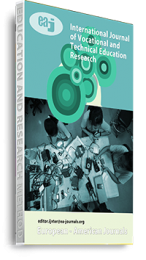Basketry, is making interlaced items, typically containers, out of flexible vegetal fibres like twigs, grasses, osiers, bamboo, and rushes or synthetic or plastic materials. The containers created using this technique are known as baskets. Traditional craft methods for producing artefacts are slowly dying and giving way to modern day technology. In the bid to preserve some of such craft skills and impact same on others, the study embarked on the production of an instructional learning resource for weaving traditional baskets in Isale Oyo, Nigeria. The main thrust of this study was to develop an instructional learning resource (video) that would preserve the traditional craft of weaving cane baskets and also train young people. The ADDIE Model of Instruction Systems Design was implemented for the development of the instructional learning material. This involved a preconceived and self-reflexive practical component. The study revealed the stages involved in the production of instructional videos which are the pre-production, production, and post-production stages respectively. Results of the study reaffirms certain findings in some earlier researches associated with instructional materials production. It also strengthened the potential and relevance of instructional videos in documenting and preserving traditional arts and crafts. Consequently, results from the evaluation carried out, suggest that instructional videos can stand in place of a trainer in an apprenticeship training programme.
Keywords: Apprenticeship, basketry, craft, instructional video

